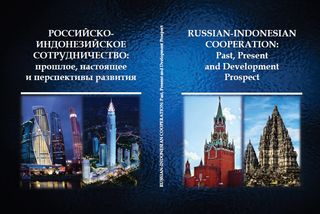?
The Greater Eurasian Partnership: a Re-Energizer of Russia-Indonesia Cooperation?
Although Russia and Indonesia have ample reasons to make their cooperation comprehensive, nuanced and multi-dimensional, practice routinely falls short of expectations. Notable impediments include a large distance magnified by inefficient infrastructure, as well as lack of institutional and technological interdependence and weak people-to-people contacts, and most importantly, insufficient stimuli to expand ties beyond their present scope. Revealingly, practice demonstrated that market forces alone cannot make the Russia-Indonesia cooperation really deep, close, multi-dimensional and, by implication, strategically-oriented. Accounting for Moscow’s and Jakarta’s plans to elevate their relations to the level of Strategic Partnership, a new instrument to make them relations exactly what their forthcoming status suggests is needed.
In book
